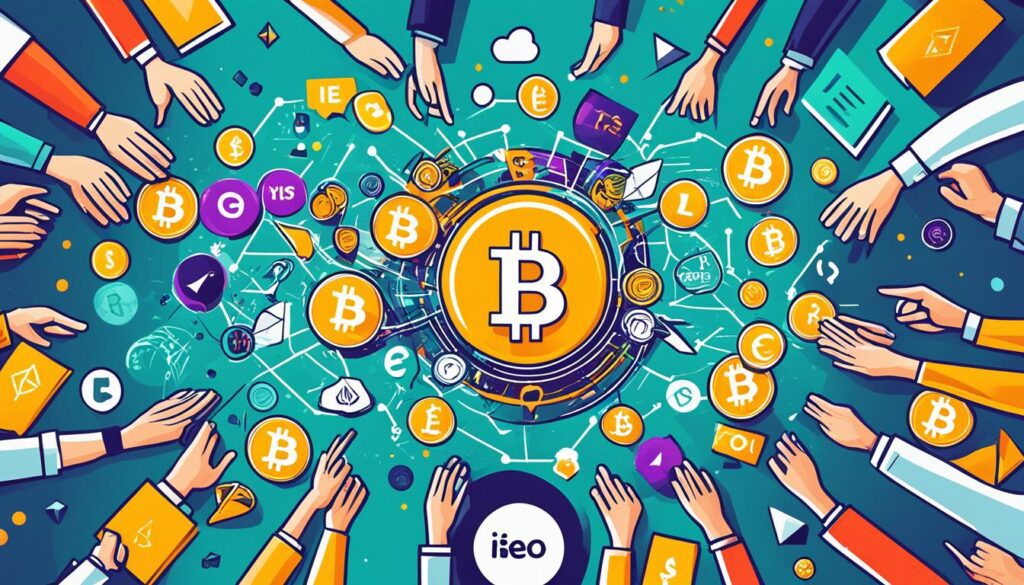Welcome to the world of decentralized finance (DeFi), where Financial Freedom (financial independence) is within reach. In this article, we will explore how DeFi is revolutionizing traditional financial systems and empowering individuals to take control of their finances.
Decentralized Finance, commonly known as DeFi, operates on blockchain technology, eliminating the need for intermediaries and giving users complete control over their financial transactions. By leveraging cryptocurrencies, DeFi offers a wide range of benefits, including peer-to-peer interactions, instant access to financial services, and the ability to earn rewards through mechanisms like lending, borrowing, and staking.
Unlocking financial freedom through DeFi means breaking free from the limitations and fees imposed by traditional finance systems. With DeFi, anyone can access financial services without relying on banks or other centralized institutions. This opens up a world of possibilities for individuals who have been excluded or underserved by traditional financial systems.
Key Takeaways:
- Decentralized Finance (DeFi) operates on blockchain technology and eliminates the need for intermediaries.
- DeFi provides individuals with complete control over their financial transactions.
- By leveraging cryptocurrencies, DeFi offers benefits like peer-to-peer interactions and earning rewards.
- Unlocking financial freedom through DeFi means gaining access to financial services without relying on traditional banks.
- DeFi empowers individuals who have been excluded or underserved by traditional financial systems.
Understanding Decentralized Finance (DeFi)
Decentralized Finance (DeFi) is a paradigm shift in the financial landscape that allows users to access financial services without relying on traditional banking systems. By leveraging blockchain technology and smart contracts, DeFi creates transparent, secure, and decentralized platforms that offer a range of benefits to individuals.
“DeFi eliminates the need for intermediaries, reduces transaction costs, enables global accessibility, and promotes financial inclusion.”
The Benefits of DeFi for Financial Freedom
One of the key advantages of DeFi is the elimination of intermediaries. Traditional financial systems often require multiple intermediaries, such as banks, brokers, and clearinghouses, to facilitate transactions. These intermediaries not only increase costs but also introduce complexities and potential points of failure. DeFi removes these intermediaries, allowing users to interact directly with the platform, resulting in faster, more transparent, and cost-effective transactions.
Decentralized exchanges (DEXs) are gaining popularity within the DeFi ecosystem. DEXs, like Uniswap and SushiSwap, allow users to trade tokens directly with other users, without the need for a centralized exchange. This peer-to-peer trading model not only enhances security but also enables individuals to have full control over their assets, reducing the risk of theft or hacking.

Smart contracts, another fundamental aspect of DeFi, play a crucial role in enabling automated, trustless transactions. These self-executing contracts eliminate the need for intermediaries by automatically executing predefined actions once certain conditions are met. Smart contracts ensure that transactions occur exactly as agreed upon, without any possibility of censorship or manipulation.
Decentralized Finance and Financial Inclusion
DeFi has the potential to provide financial services to individuals who have been excluded or underserved by traditional banking systems. With DeFi, anyone with an internet connection can access and utilize financial services, regardless of their location or socioeconomic status. This global accessibility empowers individuals to take control of their finances and participate in the global economy.
The Role of Cryptocurrency in Unlocking Financial Freedom
Cryptocurrencies play a vital role in enabling financial freedom within the realm of decentralized finance (DeFi). As the backbone of this innovative financial system, cryptocurrencies like Bitcoin, Ethereum, and others provide users with the ability to transact securely and independently, without relying on traditional banking systems.
Crypto investing offers individuals the opportunity to grow their wealth by participating in the appreciation of digital assets. Unlike traditional investment options, crypto investing allows for greater flexibility and potential returns, tapping into the market’s volatility and unique opportunities for profit.
Investing in cryptocurrencies empowers individuals to take control of their financial futures, breaking free from the limitations imposed by traditional financial institutions. By understanding the potential of these digital assets and making informed investment decisions, individuals can pave their own path towards financial freedom.
Crypto lending platforms also contribute significantly to financial freedom within the DeFi ecosystem. These platforms enable users to lend their cryptocurrencies and earn interest on their holdings, effectively generating passive income. By leveraging their crypto assets, individuals can maximize their financial potential and achieve greater financial stability.
Additionally, stablecoins play a pivotal role in enabling seamless transactions within the highly volatile cryptocurrency market. These digital assets, such as Tether (USDT) and USD Coin (USDC), peg their value to traditional fiat currencies, providing stability and mitigating the risks associated with price fluctuations. Stablecoins offer a reliable medium of exchange within the DeFi space, allowing users to transact with confidence and convenience.
The Benefits of Cryptocurrency in Unlocking Financial Freedom:
- Greater control over finances: Cryptocurrencies enable individuals to have direct ownership and control over their assets, eliminating the need for intermediaries.
- Financial inclusivity: The decentralized nature of cryptocurrencies and DeFi platforms allows individuals without access to traditional banking systems to participate in the global financial market.
- Lower transaction costs: Cryptocurrency transactions often involve lower fees compared to traditional financial systems, reducing costs associated with cross-border payments and transactions.
- Flexibility and accessibility: Crypto investing and lending platforms offer individuals the flexibility to invest, earn, and participate in financial activities at any time and from anywhere in the world.
To further illustrate the role of cryptocurrency within the DeFi ecosystem, the table below showcases some popular cryptocurrencies and their applications:
| Cryptocurrency | Application |
|---|---|
| Bitcoin (BTC) | Medium of exchange and store of value; widely accepted as a digital currency |
| Ethereum (ETH) | Enables decentralized applications (dApps) and smart contracts that power DeFi platforms |
| Tether (USDT) | Stablecoin pegged to the value of the US dollar, facilitating easy conversion and stability in the crypto market |
| USD Coin (USDC) | Stablecoin pegged to the value of the US dollar, providing stability for DeFi transactions |
The role of cryptocurrency in unlocking financial freedom within decentralized finance is undeniable. By embracing cryptocurrencies, individuals gain greater control over their finances, investment opportunities, and access to a global financial ecosystem. As the world of DeFi continues to evolve, cryptocurrencies will remain a crucial element in reshaping the way we approach finance and achieve newfound financial empowerment.

Exploring the Potential of Decentralized Finance (DeFi)
Decentralized Finance (DeFi) has the potential to revolutionize the financial landscape, offering individuals greater control over their finances and empowering them with financial freedom. By leveraging blockchain technology, DeFi eliminates the need for intermediaries, opening up opportunities for financial inclusion for individuals who have limited access to traditional banking systems. This enables them to participate in the global financial market and explore new avenues for wealth creation.
The future of finance lies in the integration of DeFi with traditional financial systems. While DeFi offers numerous advantages, including lower transaction costs and increased accessibility, scalability and interoperability challenges must be addressed for widespread adoption. Additionally, navigating the regulatory landscape is essential to ensure the long-term sustainability and legitimacy of decentralized finance.
Decentralized asset management platforms, such as Superposition, are a key component of the DeFi ecosystem. These platforms provide transparent and efficient solutions for portfolio diversification and risk management, allowing individuals to manage their assets without relying on centralized intermediaries. With decentralized asset management, users can take advantage of the benefits of DeFi while maintaining control and minimizing counterparty risk.
To better understand the potential of DeFi, consider the following table that compares the traditional financial system with decentralized finance:
| Traditional Financial System | Decentralized Finance (DeFi) |
|---|---|
| Relies on centralized intermediaries | Eliminates intermediaries, enabling peer-to-peer transactions |
| High transaction costs | Lower transaction costs |
| Limited accessibility | Global accessibility |
| Dependent on traditional identification and verification systems | Uses blockchain technology for secure and decentralized identity verification |
The Potential of DeFi in Financial Empowerment
DeFi presents significant opportunities for financial empowerment, especially for underserved populations who may lack access to traditional financial services. By providing a decentralized alternative, DeFi allows individuals to actively participate in financial activities and take control of their financial well-being.
Furthermore, decentralized financing solutions offer the potential for higher investment returns, as users can explore innovative avenues such as decentralized lending and borrowing. With decentralized asset management platforms, individuals can diversify their portfolios and manage risks more effectively, unleashing the full potential of their assets.
Through the integration of DeFi with traditional finance systems and continuous advancements in technology, the future of finance is evolving towards a more inclusive and decentralized ecosystem. As regulatory frameworks adapt and scalability challenges are overcome, the potential of DeFi to reshape the financial landscape becomes increasingly evident.

Superposition: Unlocking Financial Freedom Through DeFi
Superposition is a groundbreaking decentralized protocol for lending and borrowing within the DeFi space. It provides a secure, efficient, and transparent platform for users seeking financial empowerment. By leveraging Concordia’s adaptive risk model, Superposition offers unparalleled risk management capabilities, ensuring the safety of user funds.
Users can easily access the platform and engage in lending or borrowing activities within minutes, thanks to its intuitive interface. Superposition’s innovative solutions address the limitations of static risk models in DeFi, setting a new standard for decentralized protocols.
“Superposition revolutionizes the way users interact with decentralized lending and borrowing platforms. Its adaptability and risk management features empower users to maximize their financial potential while minimizing risks, making it an ideal choice for those seeking financial empowerment.”
Key Features of Superposition:
- Decentralized lending and borrowing: Superposition allows users to securely lend and borrow funds directly from others in a decentralized manner. This eliminates the need for intermediaries, reduces costs, and increases accessibility.
- Intuitive user interface: The platform’s user-friendly interface ensures a seamless experience, making it easy for users to navigate and engage with lending and borrowing activities without any technical expertise.
- Adaptive risk management: Superposition leverages Concordia’s adaptive risk model to dynamically assess and manage risks associated with lending and borrowing activities. This ensures optimal risk mitigation and protection of user funds.
- Transparent and auditable: Superposition operates on blockchain technology, providing transparent and auditable transactions. Users can verify their transactions and ensure the integrity of the lending and borrowing process.
- High liquidity: The platform offers high liquidity, allowing users to access funds promptly when needed. This ensures flexibility and convenience for users engaged in lending or borrowing activities.
Case Study: Empowering Small Business Owners
Superposition has emerged as a catalyst for financial empowerment, particularly for small business owners. By leveraging the platform’s decentralized lending and borrowing capabilities, small business owners gain access to much-needed capital without the restrictions and complexities imposed by traditional financial institutions.
Through the Superposition protocol, small business owners can secure funds for expansion, inventory management, or other operational expenses, allowing them to grow and thrive without the burden of excessive interest rates or collateral requirements.
Furthermore, Superposition’s adaptive risk management system ensures stability and protection for lenders, mitigating the risk of default and system failures. This mutually beneficial ecosystem fosters trust and promotes a sustainable lending environment.

Superposition: Revolutionizing DeFi for Financial Empowerment
Superposition is at the forefront of transforming the DeFi landscape by empowering individuals with greater financial control. Through its decentralized lending and borrowing features, innovative risk management solutions, and user-friendly interface, Superposition offers a platform where individuals can achieve financial empowerment and unlock their full potential.
As the DeFi space continues to evolve, Superposition remains dedicated to providing inclusive financial services, fostering financial empowerment, and driving the widespread adoption of decentralized finance.
Join Superposition today and experience the transformative power of DeFi for financial freedom and empowerment.
Conclusion
In conclusion, Decentralized Finance (DeFi) offers individuals the transformative opportunity to achieve financial freedom through the decentralized ecosystem it provides. By eliminating intermediaries and reducing transaction costs, DeFi empowers individuals to have complete control over their finances, promoting financial inclusion on a global scale. The integration of DeFi with traditional finance systems and the advancements in risk management, exemplified by innovative protocols like Superposition, shape the future of finance.
As the DeFi ecosystem continues to evolve and mature, investors, entrepreneurs, and individuals stand to benefit from the transparency, security, and efficiency it offers. Embracing the realm of DeFi opens new doors to financial liberation, enabling individuals to unlock their true wealth potential while navigating the ever-changing financial landscape.
Unlocking financial freedom through the DeFi ecosystem not only means greater control over one’s financial life, but also presents opportunities for individuals to actively participate in the global economy and earn attractive returns on their investments. By embracing DeFi, individuals can embark on a path towards a more inclusive and empowered financial future, where traditional barriers are broken down, and transformative opportunities abound.










